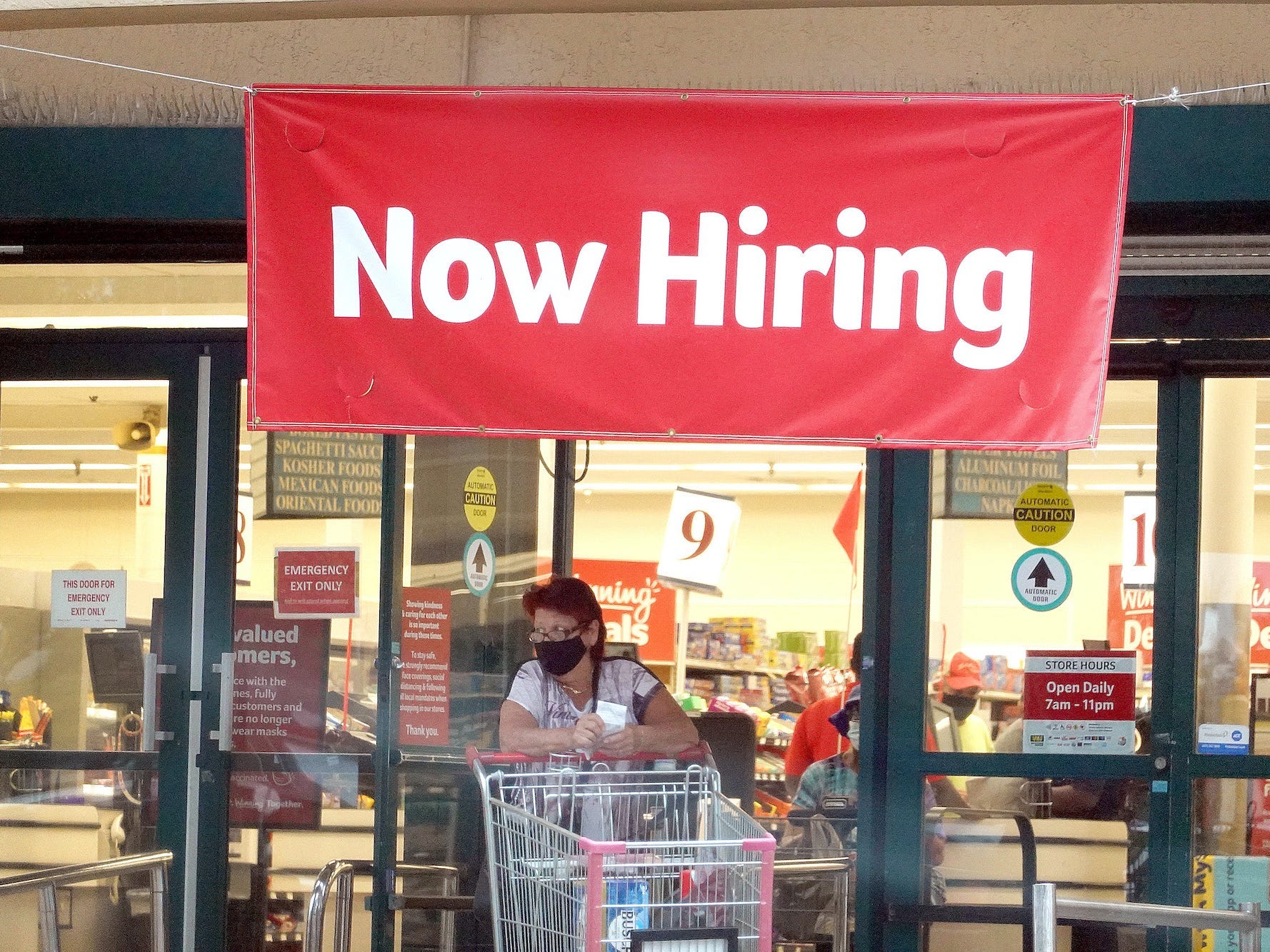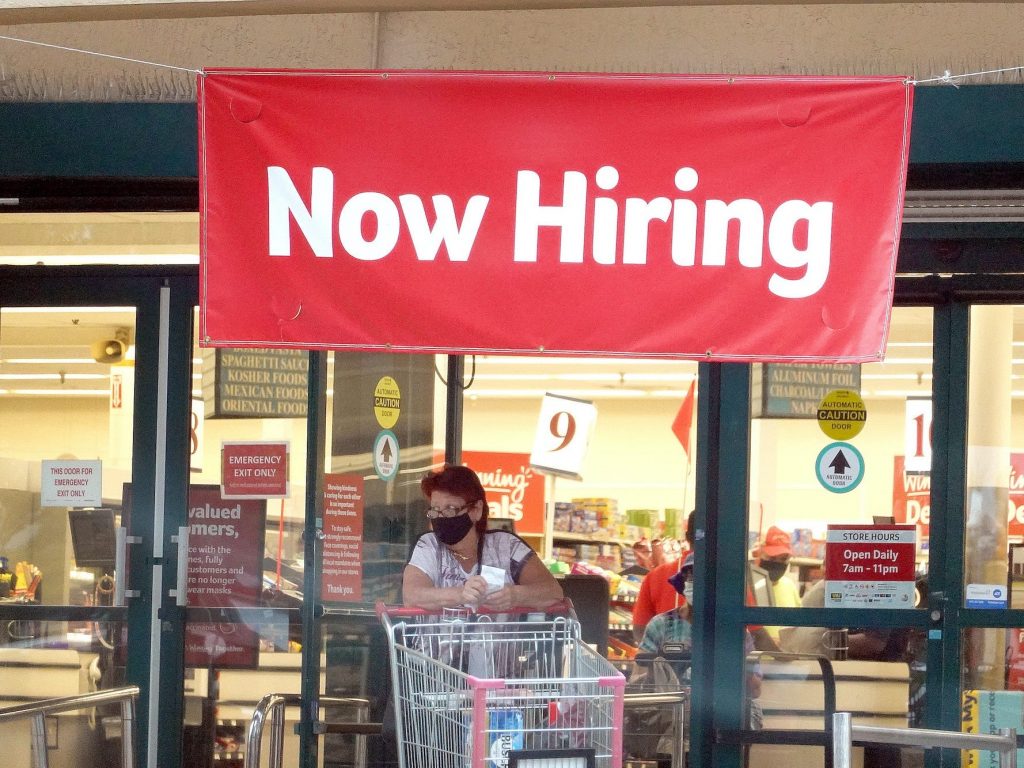
Joe Raedle/Getty Images
- Employers are offering hundreds and even thousands of dollars in sign-on bonus amid the labor shortage.
- This money incentive might sound like a great reason to apply for a job, but there are some issues with it.
- One problem is it might attract people who are only taking the job because of the bonus.
There's a massive labor shortage that has been with the economy for months, and some employers have decided sign-on bonuses could be the solution.
It's not really working.
For instance, Union Public Schools in Oklahoma advertised $1,000 sign-on bonus for some positions, some airport restaurants are also offering large sign-on bonuses, and Amazon has offered signing bonuses of up to $3,000. Monument Health in South Dakota, who is feeling the shortage pains, has even offered $40,000 sign-on bonuses for intensive care and operating rooms nurses.
A quick look at job postings on career sites like Indeed and you'll see various businesses emphasizing sign-on bonuses. In fact, Indeed data shows postings with hiring incentives, including bonuses, have doubled since last year; about 5% of postings noted hiring incentives as of early October.
But one economist told Insider that incentives like bonuses might "get [workers] in the door, but it doesn't make them stay." With people taking a position and then moving on to another opportunity that may include another sign-on bonus, it may result in continued staffing struggles.
Here are three reasons signing bonuses aren't solving the labor shortage.
They can't be the only benefit offered
Appcast, a programmatic job advertising software company, recently used job descriptions to look at benefits and how they affect apply rates.
"Despite employers' efforts to entice candidates with signing bonuses, warehousing & logistics was the only industry that saw a correlation between signing bonus mentions and increased apply rates," Appcast found.
Instead, Appcast found when looking at additional compensation benefits that "regular, incremental bonuses most dramatically increased apply rates." Appcast noted that this was especially true in customer service and tech jobs.
"The issue may be that when job ads mentioned signing bonus, it was likely to be the only benefit included in the ads," Appcast wrote, and offered in isolation, it's likely not enough to trigger applications by itself.
They can attract the wrong people
Childcare providers are also dealing with retaining and hiring issues. And although some have been giving out sign-on bonuses, one lead toddler teacher told Insider that bonuses may come with some consequences.
"You're just setting these kids up for failure, the other staff members up for failure, because then what winds up happening is these people will come in, get the incentive, leave, and you're left with children who don't get consistency," she said. "They have a different teacher every week. And it's not good for them."
Workers are smart enough to recognize it's just a one-time thing
Some restaurants and fast-food businesses have also tried signing bonuses, as businesses in the leisure and hospitality industry are especially having trouble finding and retaining workers.
However, Insider's Rachel DuRose reported that fast-food restaurants should focus on transforming company culture instead. "The good employers are a bit more thoughtful about how to attract talent, and it's not only about cash," Andrew Hunter, cofounder of job search engine Adzuna, told DuRose.
One childcare worker from Massachusetts told Insider that sign-on bonuses may attract new workers into childcare, but people should look further into the kinds of benefits offered and beyond the one-time incentive.
When asked about if things like bonuses and increasing pay are enough to get people back into these jobs, specifically at employers in leisure and hospitality, ADP Chief Economist Nela Richardson told Insider in an August interview that these things may "get [workers] in the door, but it doesn't make them stay."
"So what can you do to incentivize a low-pay worker to work?" Richardson said, noting businesses can offer signing bonuses and increase wages. She added that without things like career pathways and trainings, businesses "may not keep those workers past the one-year mark."
"I think a question that has been missing from the labor market that they might have to re-ask is what drives loyalty," Richardson said.

